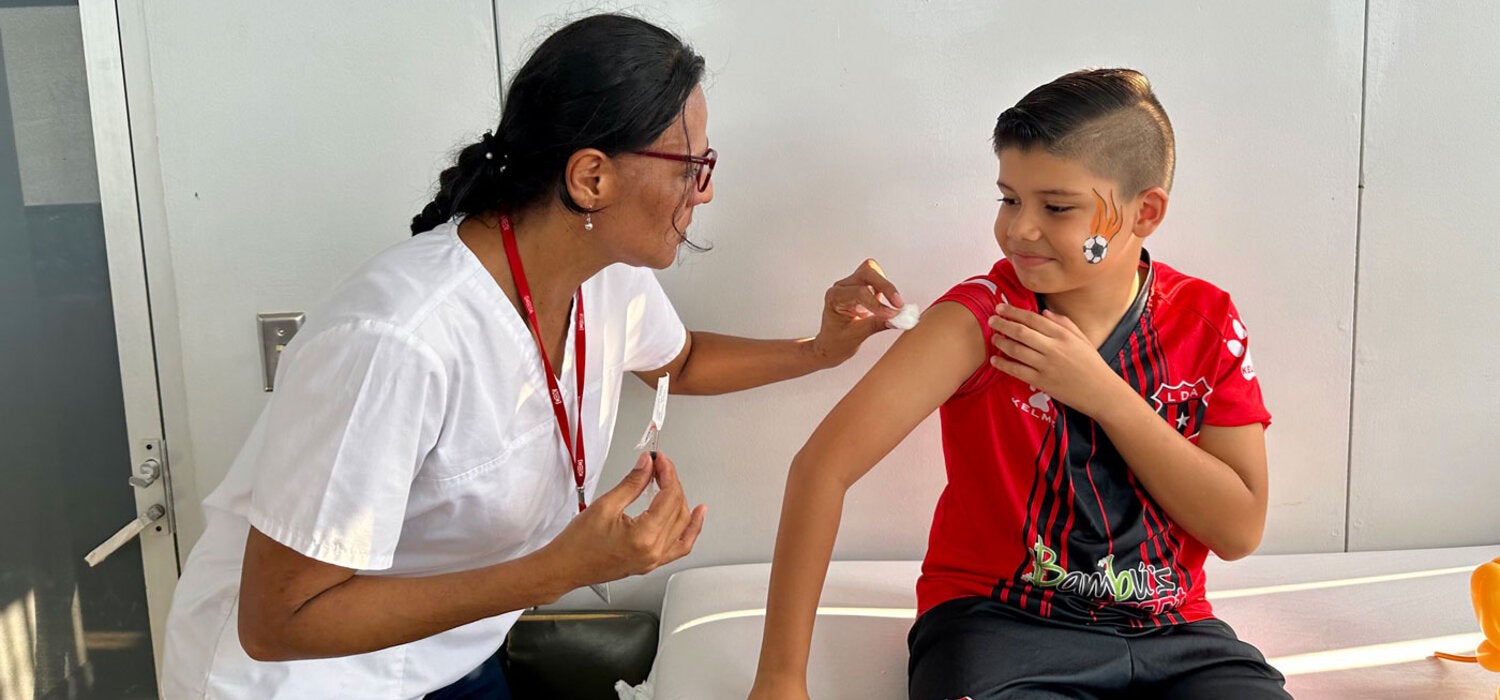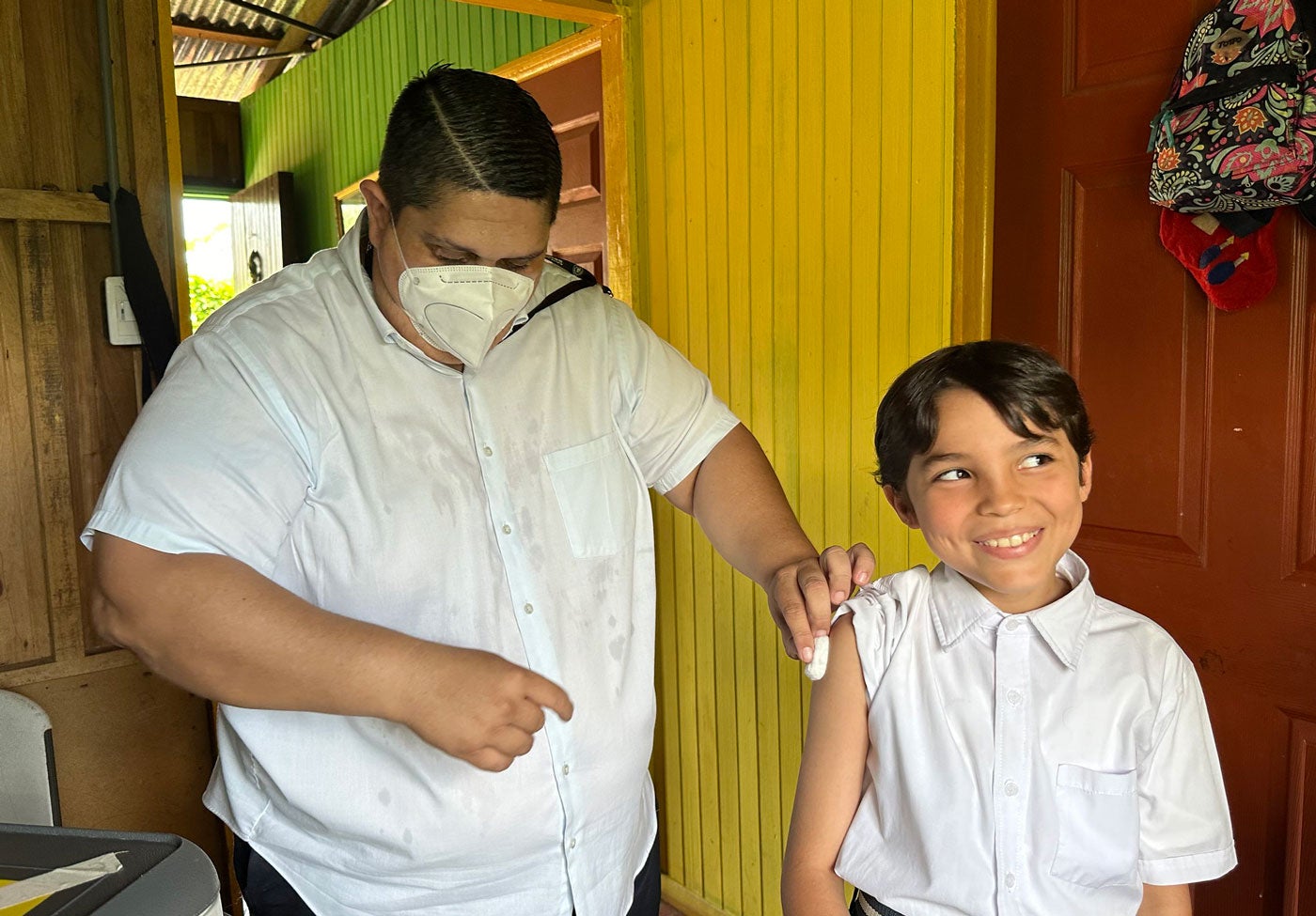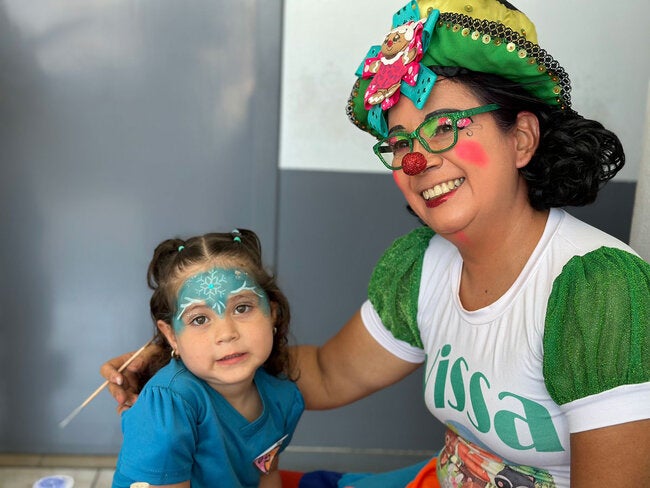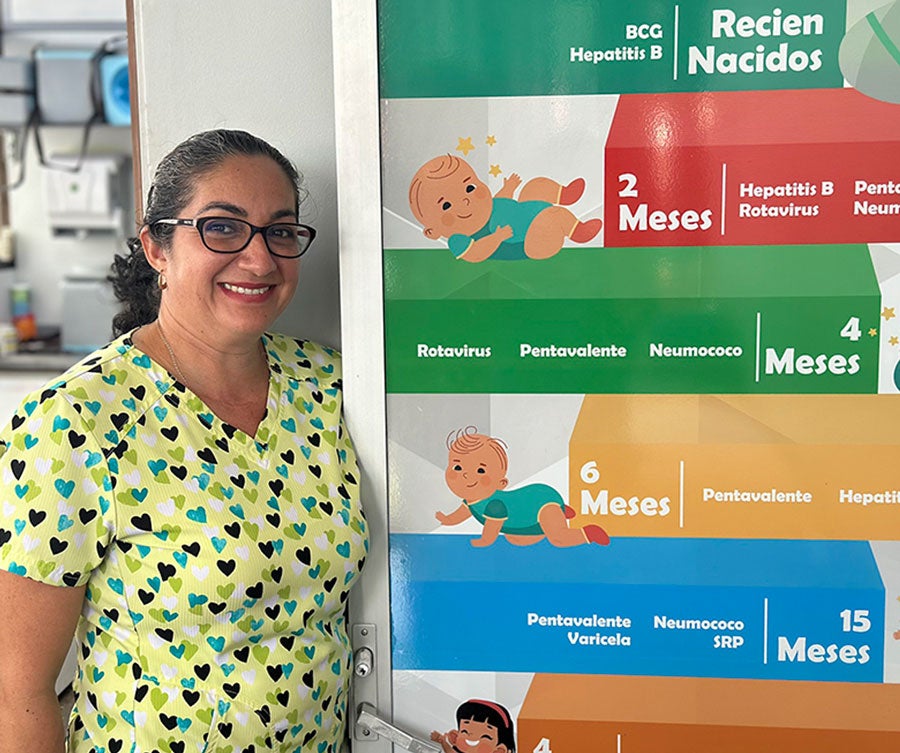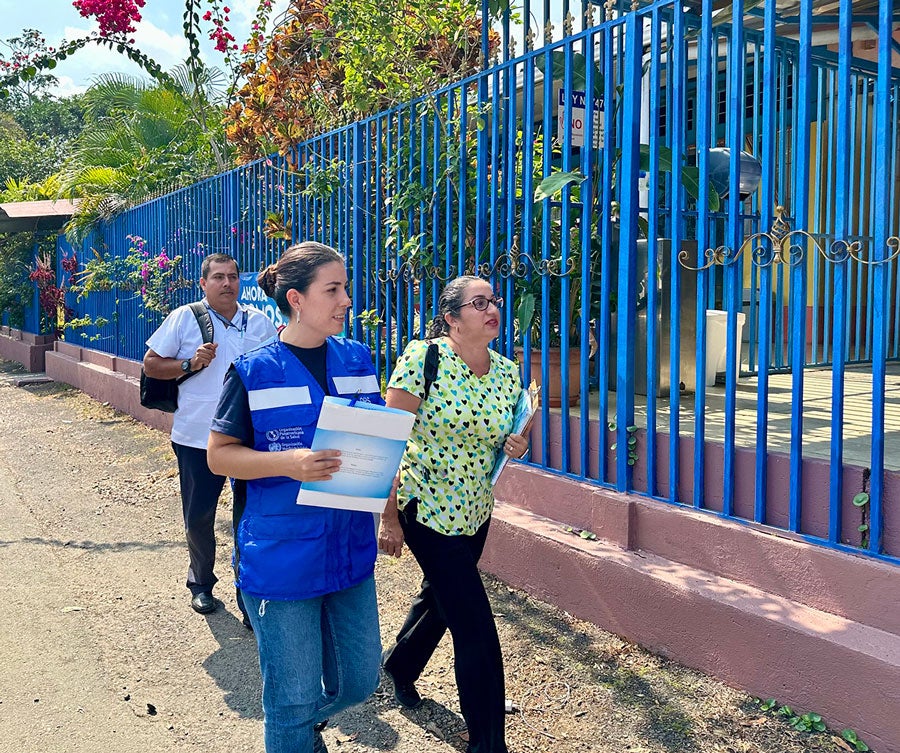In 2023, large measles outbreaks were reported in 51 countries worldwide. In the Americas, 92 cases were reported in seven countries, mostly in the United States and Canada. Costa Rica reported one imported case that, thanks to follow-up efforts, did not spread to anyone else.
PAHO continues to warn about the real risk of reintroduction of measles in the region due to low immunization coverage. Vaccination Week in the Americas, April 20-27, is an opportunity for millions of people of all ages to ensure they are up to date with their vaccinations.
"The measles virus is a constant threat to unvaccinated children," PAHO/WHO representative in Costa Rica, Alfonso Tenorio, said. That is why this vaccination campaign "is fundamental to provide all children with the protection they need to keep them free of measles."
In an effort to reach the entire target population of children, health teams implement a comprehensive strategy that includes vaccination in health centers, home visits and campaigns in schools and care centers.
Collaboration between educational and health institutions, as well as with other members of the community, is also essential to ensure that every child receives the vaccine. For Marta Eugenia Arce, director of a school in Aguas Zarcas, our contribution is to raise awareness among parents and students, because we believe in vaccination as a preventive measure".
Another essential tool used by the health teams of the Costa Rican Social Security Fund is the Integrated Vaccine System (SIVA), which facilitates the follow-up of those who have not yet received their dose, as well as actions to reach them.

